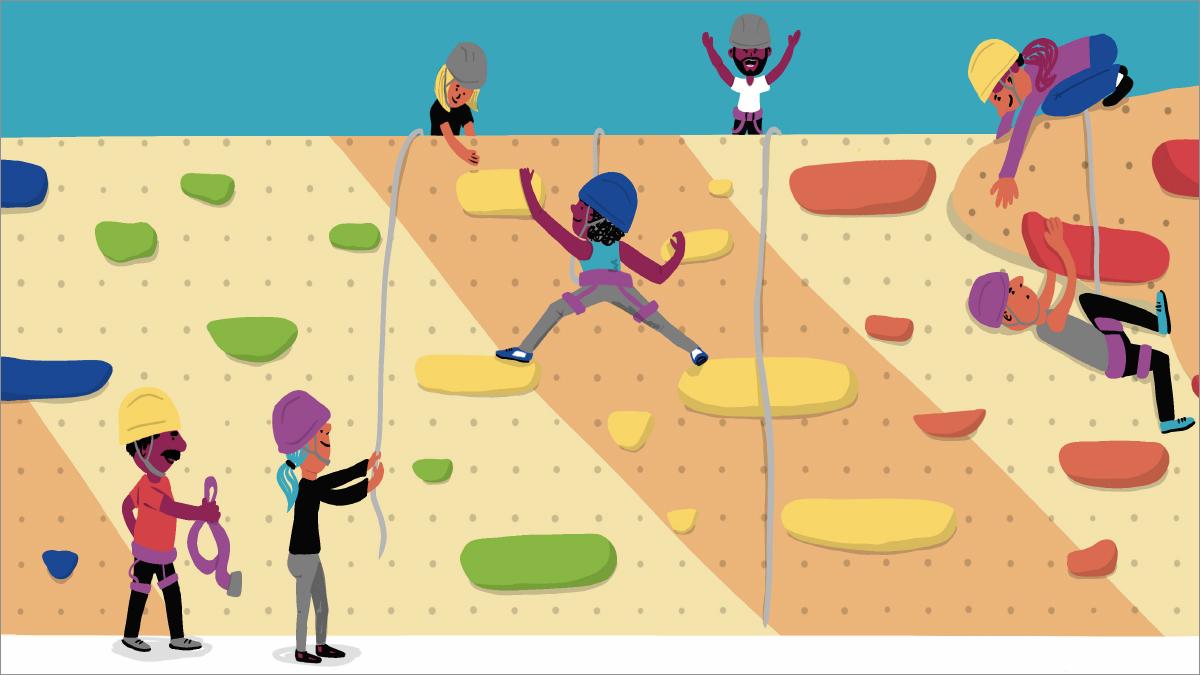Building a supportive physiotherapy community

We all thrive in a place we feel we belong. Understanding and tackling invisible burdens experienced by newly qualified physiotherapy staff from minoritised backgrounds will ensure that everyone in the profession feels a sense of belonging and fulfils their career potential.
Everyone can contribute to this! Charmaine Turner’s research brings to light achievable strategies for meaningful and sustainable change, so that everyone can feel a sense of belonging in the physiotherapy community.
Charmaine Turner, senior rehabilitation physiotherapist at Guy’s and St Thomas’ Trust, London
The idea for this project started not too long after I had started my first band 5 role, around six months in from starting in 2019. I was inspired by the article by Hammond et al 2019, where the experiences of physiotherapy students from global majority backgrounds had been explored. I found their stories incredibly relatable yet saddening and I wondered if these feelings were common among newly qualified band 5s from racially marginalised communities. I questioned the impact on staff relations, work pressures, career progression and patient care as a result of exclusion and discrimination, and the extra effort required to overcome stereotypes. I believed that by allowing team members to see the world from another’s frame of reference as an outcome of the project, it would offer the opportunity for self-reflection and self-awareness.
After discussing my ideas and securing support from senior colleagues, a proposal was put together and we collectively applied for competitive funding to improve the experiences of newly qualified staff from racially minoritised groups. The intention behind this project proposal was to understand and share the experiences of newly qualified band 5 staff from minoritised backgrounds. I was fortunate enough to obtain the funding and led this work with external and senior manager guidance and support. This work was carried out over 15 months and utilised focus groups to understand the issues, which then led to co-created led solutions, of which the impact is currently being evaluated.
The findings from the focus group spoke to self-reflection and self-awareness and the areas of action included: promoting allyship, being authentic (work-self versus personal-self), having inclusive conversations (during social interaction and about race at work), diversifying social events and reforming recruitment.
Promoting allyship
This is the act of showing someone that you stand with them, you try to understand their outlook or perspective, and by doing so demonstrate this through your actions, for example speaking up against discrimination.
Inclusive conversations: social interaction
Having inclusive conversations during social interaction – this is based on the notion of social breaks which are times at work where people can relax a little, and if you want to be involved it’s a great opportunity to build connection. Sometimes if one topic of conversation dominates for a couple of weeks, those that can’t relate to the topic can be left feeling on the outside because they are unable to contribute or can be left feeling their attempt to make conversation won’t be well received, creating more distance. It is especially so if the person is a newcomer.
Diversifying social events
This is simply expanding social events beyond ‘pub culture’; for many this is considered the only feasible way to socialise when it might not be for all. Here we can explore more diverse opportunities to socialise.
Being authentic
Being able to bring the best parts of your authentic personality to work. This isn’t always straightforward but for many it can feel that their perspective isn’t valued outside of the predominant British white culture, and for many they try to fit in with these traditions. So, it is important to celebrate and champion diversity and share or explore our various cultures and traditions, so none of us have to wear invisible masks.
Inclusive conversations: race
Having inclusive conversations around race – this is naturally a difficult topic to discuss and is often considered a taboo and uncomfortable. We may need to make a safe space for people if we wish to progress, thereby meeting people where they are, and being willing to really understand and be respectfully challenging, as well as being open to challenge.
Reforming recruitment
This is a broad topic. It pertains to asking why people leave the provider. How are minority staff progressing in addition to how they are recruited? How does the department serve or reach out to the local community to share what physiotherapy is? How does the department demonstrate and promote a diverse and inclusive workforce within physiotherapy? Does our department reflect the community it serves?
With the above in mind, I want to get us thinking about how we individually and collectively contribute towards fostering an environment that is compassionate, open, honest and inclusive.
For this project there was an expectation and strong emphasis on co-producing viable solutions because it engenders a shared value and commitment to working on developing solutions to issues that were everyone’s business. Depending on the trust, organisation, or department, the concerns may vary, which is why by adopting co-creation/co-production everyone can be heard and valued. It’s not just a top down approach.
Our teams are greatly influenced by our static and senior staff members, so their leadership sets the tone. But we all have a role to play in creating an environment that we all want to be a part of and can thrive in. The evidence shows us that if we express to one another how valued and appreciated we are as individuals, we are emboldened to bring the best parts of our authentic selves to work and when we do, we all reap the benefits.
I am also happy to share that an abstract for this work has been accepted for the World Physiotherapy congress this month. At this stage of my career I am proud and see this as a great honour. The link to the poster presentation can be viewed here.
Number of subscribers: 1




































